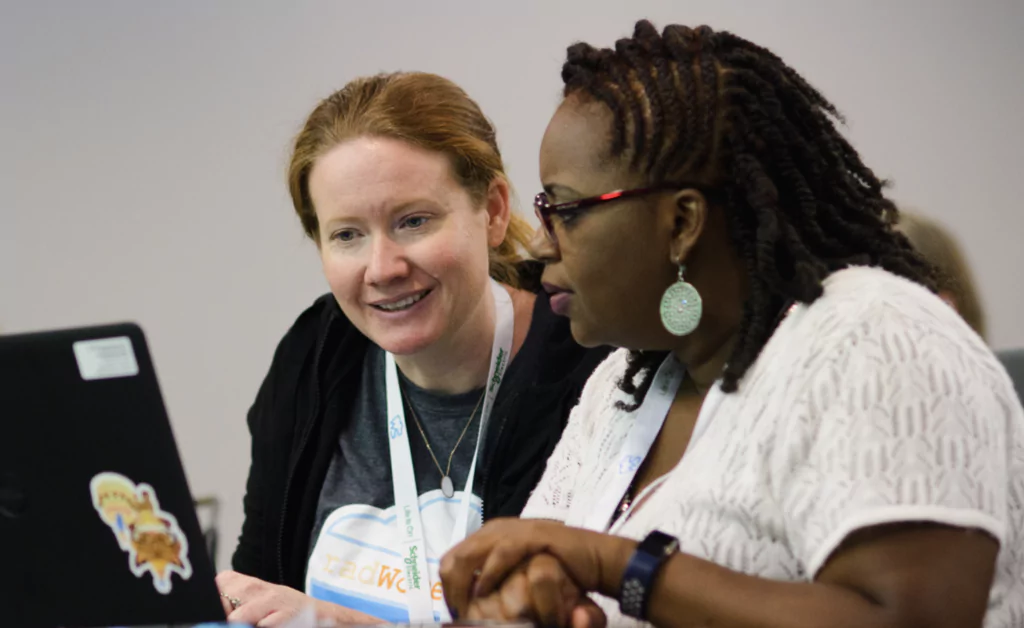
A recent report by the American Council on Education (ACE) highlights mentorship’s crucial role in the graduate education journey, particularly for underrepresented students. As written by Ashley Mowreader on Inside Higher Ed, the report, part of ACE’s Race and Ethnicity in Higher Education project, offers invaluable insights to university leaders interested in establishing and improving mentorship programs. By delving into the effectiveness of existing programs across higher education in the U.S., the report guides practitioners aiming to boost outcomes among diverse student groups in graduate education.

✅ AI Essay Writer ✅ AI Detector ✅ Plagchecker ✅ Paraphraser
✅ Summarizer ✅ Citation Generator
The Need for Mentorship
The ACE report underscores a pressing concern: the gap in representation between white students and students of color in graduate education. Data from the U.S. Census Bureau and the National Center for Education Statistics reveal that Hispanic or Latino students comprise 21.8% of undergraduates, accounting for just 12.3% of graduate students. On the other hand, white students are more represented in graduate education, comprising 61% of the student population, compared to 52.8% at the undergraduate level. This discrepancy extends to completion rates and enrollment in specific fields of study, with students of color, including Hispanic or Latino, Black or African American, and Indigenous students, less likely to enroll and complete credentials in STEM fields. To bridge these equity gaps, the report suggests that mentorship is a promising solution, positively impacting the graduate education pursuits of historically minoritized students.
How Mentorship Works
According to the ACE report, mentorship demystifies the often complicated pathway to graduate school, exposes students to research opportunities and helps them expand their professional and social networks. By connecting with a mentor, students can gain a better understanding of how to apply to graduate school, what resources are available to them, and what a typical day in the life of a graduate student looks like. In addition to this, mentors can provide valuable insight into the hidden curriculum of graduate school, which can be particularly beneficial for first-generation students. These mentor-student relationships also allow students to explore their feelings about research and develop essential professional skills for graduate school. But not just the mentees benefit; mentors also gain from these relationships. By offering guidance and support to a peer, graduate students can reflect on their own experiences, expand their professional and academic networks, and hone their interpersonal and communication skills.
To truly understand the impact and importance of these mentorship programs, let’s examine the experiences of María, a Latina graduate student, and her mentor, Dr. González. Their journey offers a real-life perspective on how mentorship can shape the academic and professional development of both the mentee and the mentor. Maria says,
“Mentorship was a game-changer for me. Dr. González not only provided valuable insights about grad school life but also exposed me to research opportunities. It was this hands-on experience and support that truly prepared me for the academic and professional challenges of grad school.“
On the other hand, Dr. González also shares the rewarding experience as a mentor.
“Mentoring María helped me reflect on my own grad school journey. I’ve also seen my network expand, and my communication skills have improved greatly in the process.“
María and Dr. González’s story illustrates how mentorship programs not only enhance students’ educational journeys but also foster professional development among mentors. It is clear from such experiences that implementing mentorship programs can go a long way in promoting diversity, equity, and inclusion in higher education.
Enhancing Mentorship Programs
The report suggests that colleges and universities can augment the effectiveness of mentorship programs through institutional support measures. Institutions can intentionally recruit mentors and encourage activities that help historically minoritized students thrive in their mentorship relationships. Additionally, offering financial support to these students can alleviate responsibilities that could detract from their academic planning and mentoring activities. For example, colleges can provide stipends to students participating in graduate preparation programs to offset costs like books and fees for tests or applications. Furthermore, institutions should also consider faculty and staff development within mentorship programs, such as equity and inclusion training or funding for collaboration among mentors. Establishing relationships with other institutions that offer graduate programs can also help students connect with potential mentors and enhance their graduate school experience.
Best Practices
In addition to these recommendations, the report offers a list of best practices for institutional leaders considering promoting or establishing mentorship programs for historically marginalized students. Leaders should tie mentoring into broader diversity, equity, and inclusion (DEI) goals, as this can help gain student, faculty, and staff buy-in. It is also essential to understand learners’ unique needs and goals at a particular institution, which should guide the creation of a formal or informal mentorship program. Mentoring eligibility requirements should be crafted thoughtfully to ensure they do not exclude historically minoritized students. Offering different types of mentors, like faculty, staff, or peers, can better meet the needs of students. Finally, the report stresses the importance of continuously evaluating the impact of mentorship programs. Clear goals and indicators should be tracked, such as participant perceptions and satisfaction with the program and student outcomes post-mentorship.
Related stories:
Monthly Higher Education Trends: Improving College Education and Preparing to Enter The Job Market
Teachers Start Adressing Student Bigotry in the Classroom
Innovative Learning Sparks Global Change at the University of Derby
Follow us on Reddit for more insights and updates.





Comments (0)
Welcome to A*Help comments!
We’re all about debate and discussion at A*Help.
We value the diverse opinions of users, so you may find points of view that you don’t agree with. And that’s cool. However, there are certain things we’re not OK with: attempts to manipulate our data in any way, for example, or the posting of discriminative, offensive, hateful, or disparaging material.